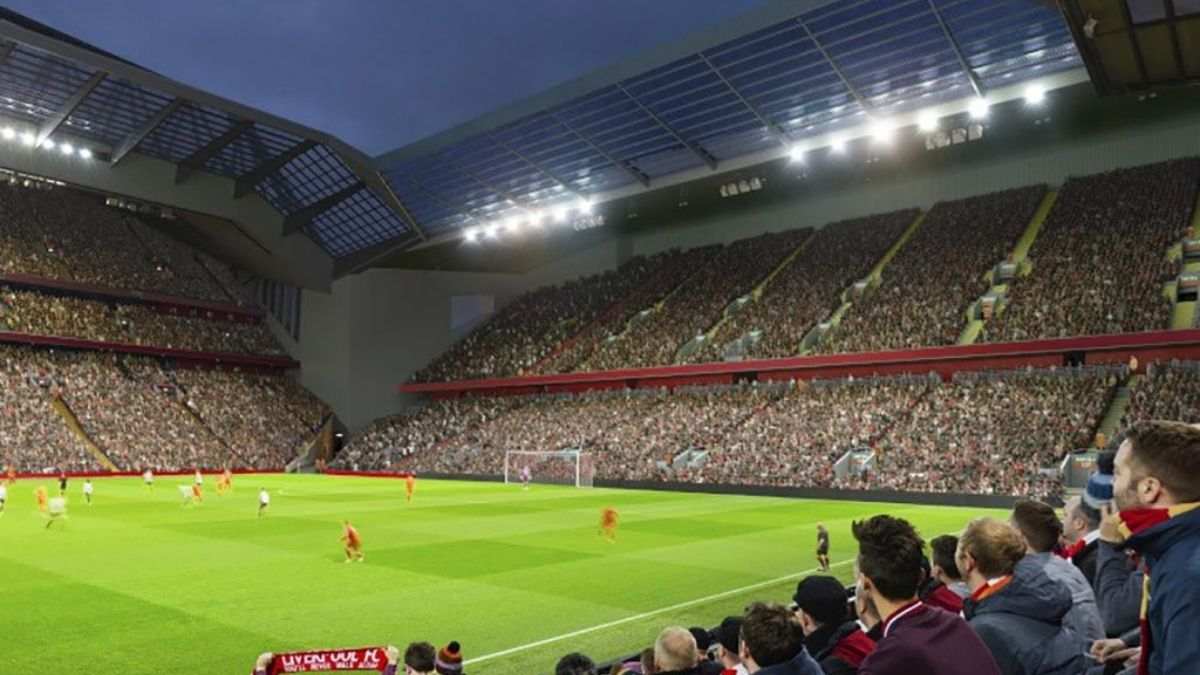
Liverpool exploring ‘multi-billion’ stadium decision
Manchester City have started building a virtual Etihad in the metaverse. So, should Liverpool look at similar stadium possibilities?
Manchester City have collaborated with Sony, to build the world’s first virtual reality stadium in the metaverse. Through a three-year deal, City want to open the Etihad to supporters all over the world to a virtual experience. Especially to developing markets all over the world.
It is common knowledge that not all fans can attend a particular game for any team. This is particularly poignant for big clubs, who have global fan bases. Thus, a virtual stadium allows fans to view matches from the comfort of their living rooms. Other possibilities being explored are: fan meets & greets, and player interactions. A virtual stadium will also open up the opportunity of selling virtual merchandise through digital channels.
Some people might scoff at the idea of virtual merchandise or online events, but they are already happening. In fact, a whole ecosystem is crystallizing around virtual merchandise. Take Fortnite as an example, the first-person shooter has raked in billions from selling digital products. EA Sports FIFA has a similar model, paying real money to buy virtual items.
It is natural to argue that live events such as concerts, or sports fixtures cannot work through a virtual medium. However, some of these events are already happening. When Lil Nas X performed the first-ever Roblox concert in 2020 more than 36 million people watched.
Manchester City look to do something similar to football matches. A VR stadium opens up the possibility of an untapped revenue stream, with relatively lower costs while also increasing engagement with fans.
Can Liverpool invest in a virtual stadium?
Then there’s the question (or rather, an opportunity) of broadcasting. Premier League clubs negotiate broadcasting as a group, rather than individually. Meaning, one club cannot exercise its influence to get better deals. However, VR might give the big clubs the opportunity to negotiate more favourable terms.
Liverpool might also consider a virtual stadium experience, given its partners’ leanings and its incredible supporter base. Nike, Liverpool’s kit supplier have trademark applications that indicate they are planning to sell virtual branded items in the metaverse.
Several FSG partners such as Paul Watcher and Gerry Cardinale have already invested in Virtual Reality (VR), Augmented Reality (AR) and Extended Reality (ER) companies. Thus, the question of whether a virtual stadium is the future of football stadiums might only depend on conjecture. Therefore, Liverpool might also look at the feasibility of a virtual Anfield.
But let’s not get ahead of ourselves. Even though, the technology has borne fruits in terms of virtual merch and concerts; it isn’t ready for a sport such as a football. As the current technology can’t replicate the atmosphere of a real-life stadium.
And the atmosphere within the stadium influences a match just as much as, what is happening on the pitch. Sometimes the performance on the pitch might be drab, but supporters make up for it by chants, songs and reactions. Anfield might be the best example. Then there’s a question of accessibility of the technology, needed to experience a virtual stadium. There is a significant virtual divide amongst developing and under-developed nations.
However, the idea won’t be discarded just because the technology is in its infancy. Rather, we will see more and more clubs entering the fray.
We might have even have witnessed the start of a new era.
